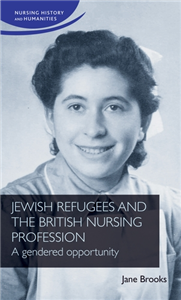Description
More Information
Rights Information
Albania, Algeria, Angola, Argentina, Armenia, Australia, Austria, Bahrain, Belgium, Belize, Benin, Bolivia, Bosnia and Herzegovina, Botswana, Brazil, Bulgaria, Burkina Faso, Burundi, Cameroon, Canada, Cape Verde, Central African Republic, Chad, Chile, China, Colombia, Comoros, Congo [DRC], Congo, Republic of the, Costa Rica, Ivory Coast, Croatia, Czech Republic, Denmark, Djibouti, Ecuador, Egypt, El Salvador, Equatorial Guinea, Eritrea, Estonia, Ethiopia, Faroe Islands, Finland, France, French Guiana, Gabon, Gambia, Georgia, Germany, Ghana, Greece, Guatemala, Guinea, Guinea-Bissau, Guyana, Honduras, Hongkong, Hungary, Iceland, India, Indonesia, Iran, Iraq, Ireland, Israel, Italy, Japan, Jordan, Kazakhstan, Kenya, Kuwait, Latvia, Lebanon, Lesotho, Liberia, Libya, Lithuania, Luxembourg, Macau, China, Macedonia [FYROM], Madagascar, Malawi, Malaysia, Mali, Malta, Mauritania, Mauritius, Mayotte, Mexico, Mongolia, Montenegro, Morocco, Mozambique, Namibia, Netherlands, New Zealand, Nicaragua, Niger, Nigeria, Norway, Oman, Pakistan, Panama, Paraguay, Peru, Philippines, Poland, Portugal, Puerto Rico, Qatar, Reunion, Romania, Russia, Rwanda, Saint Helena, Sao Tome and Principe, Saudi Arabia, Senegal, Serbia, Seychelles, Sierra Leone, Singapore, Slovakia, Slovenia, Somalia, South Africa, South Korea, Spain, Sri Lanka, Sudan, Suriname, Swaziland, Sweden, Switzerland, Syria, Taiwan, Tanzania, Thailand, Timor-Leste, Togo, Tokelau, Tunisia, Turkey, Uganda, Ukraine, United Arab Emirates, United Kingdom, United States, Uruguay, Venezuela, Vietnam, Western Sahara, Yemen, Zambia, Zimbabwe, South Sudan, Cyprus, Palestine, Bangladesh, Cambodia, Liechtenstein, Azerbaijan, Jamaica, Kyrgyzstan, Dominican Republic, Myanmar, Monaco
Endorsements
This is the first major study to explore the personal and professional lives of Jewish refugees who entered the nursing profession in Britain. In the mid twentieth-century, nursing was nominally a profession but with poor pay and harsh discipline. It was unpopular with British women and in the years preceding the Second World War, hospitals in Britain suffered chronic nurse staffing crises. Despite the opportunities war-work offered women, the highly gendered world of mid-twentieth century Britain, meant most remained in feminised occupations. Nursing was promoted as a critical mode of employment. Using a range of personal testimony, the book exposes the value the refugees placed on the profession as a means for escape and financial independence. It also brings into stark relief the Government and nursing elite's opportunistic use of refugees to fulfil an urgent need for nurses. Jewish refugees and the British nursing profession speaks not only to the historical challenges for women refugees, but current threats for migrant workers in the country's health care professions. Following the uneven trajectory of their lives, the book moves from the war years to the latter decades of the twentieth century when changes in the social order enabled more women to enter university and professional life. The refugee nurses, armed as they were, with education and intelligence could have moved out of nursing into more lucrative and socially advantageous work. Yet, most did not. Despite the relatively low numbers, the book demonstrates their considerable influence on nursing practice, education and research.
Reviews
This is the first major study to explore the personal and professional lives of Jewish refugees who entered the nursing profession in Britain. In the mid twentieth-century, nursing was nominally a profession but with poor pay and harsh discipline. It was unpopular with British women and in the years preceding the Second World War, hospitals in Britain suffered chronic nurse staffing crises. Despite the opportunities war-work offered women, the highly gendered world of mid-twentieth century Britain, meant most remained in feminised occupations. Nursing was promoted as a critical mode of employment. Using a range of personal testimony, the book exposes the value the refugees placed on the profession as a means for escape and financial independence. It also brings into stark relief the Government and nursing elite's opportunistic use of refugees to fulfil an urgent need for nurses. Jewish refugees and the British nursing profession speaks not only to the historical challenges for women refugees, but current threats for migrant workers in the country's health care professions. Following the uneven trajectory of their lives, the book moves from the war years to the latter decades of the twentieth century when changes in the social order enabled more women to enter university and professional life. The refugee nurses, armed as they were, with education and intelligence could have moved out of nursing into more lucrative and socially advantageous work. Yet, most did not. Despite the relatively low numbers, the book demonstrates their considerable influence on nursing practice, education and research.
Author Biography
Jane Brooks is a Lecturer in Nursing at the University of Manchester and Deputy Director of the UK Centre for the History of Nursing and Midwifery
Manchester University Press
Manchester University Press is a leading UK publisher known for excellent research in the humanities and social sciences.
View all titlesBibliographic Information
- Publisher Manchester University Press
- Publication Date May 2024
- Orginal LanguageEnglish
- ISBN/Identifier 9781526167422 / 1526167425
- Publication Country or regionUnited Kingdom
- FormatPrint PDF
- Pages272
- ReadershipGeneral/trade; College/higher education; Professional and scholarly
- Publish StatusPublished
- Dimensions216 X 138 mm
- Biblio NotesDerived from Proprietary 5536
- SeriesNursing History and Humanities
- Reference Code14912
Manchester University Press has chosen to review this offer before it proceeds.
You will receive an email update that will bring you back to complete the process.
You can also check the status in the My Offers area

Please wait while the payment is being prepared.
Do not close this window.



